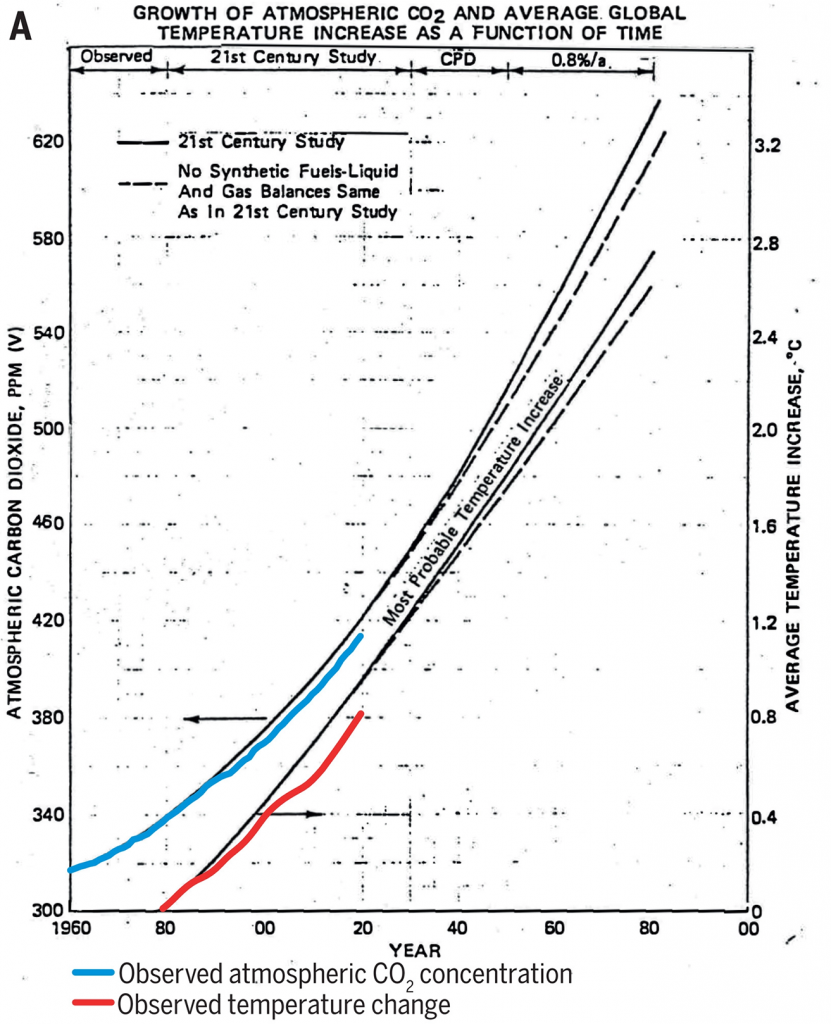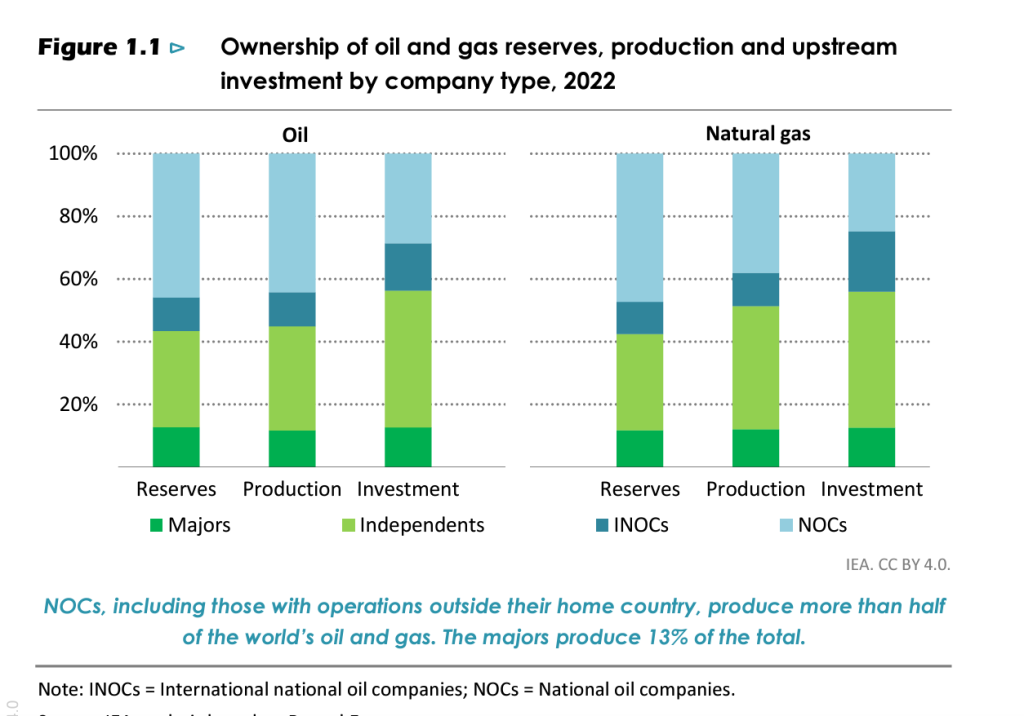From the BBC official page:
“The story of what the fossil fuel industry knew about climate change more than four decades ago.
Scientists who worked for the biggest oil company in the world, Exxon, reveal the warnings they sounded in the 1970s and early 1980s about how fossil fuels would cause climate change – with potentially catastrophic effects. Drawing on thousands of newly discovered documents, the film goes on to chart in revelatory and forensic detail how the oil industry went on to mount a campaign to sow doubt about the science of climate change, the consequences of which we are living through today.
2022 is set to be a year of unprecedented climate chaos across the planet. As the world’s leading climate scientists on the Intergovernmental Panel on Climate Change issue new warnings about climate change and the soaring cost of fuel highlights the world’s ongoing dependence on fossil fuels, this series details exactly how we got here.”
In our capitalist world, it is clear that the ‘green transition’ has had its skeptics, but it is hard to minimize the role of extractive fossil industries in supporting such skeptics or employing them in spreading lies, mistrust, or zooming in on the ‘uncertainty’ aspect. Once scientific predictions were at hand – it is almost as if there was a concerted effort to build up a counter-narrative of denialism spending countless billions to deny the runaway greenhouse effect.
‘Climate denialism’ would not exist today in this form if it had not been intentionally and systematically sponsored with big money by the oil industry majors. Such miseducation and complacency about fossil fuels are the direct results of investments in combatting scientific results and climatologist’s consensus over this matter.
Once such denialism became untenable, oil majors started promising newer, so-called ‘greener’ ways to phase out like gas (like fracking – which because of the methane leaks has been bringing us ever near to the edge of no return). It is not a bunch of cooks or just a few petrostate autocrats but decades-long campaigns of disinformation, subterfuge, and propaganda by the most powerful energy companies on earth – “oil majors” (till the recent rise of national state oil companies =NOCs and so-called independents like diversified international conglomerates responsible for upstream activities such as Mitsubishi Corp).
Why do people sport “Save Diesel” stickers on their cars? Well for one, these are not your petroleum Mad Max fools. Their belief and dependence on fossil fuels was heavily subsidized till recently. Everyone, from the farmers to the truck drivers has become addicted to such cheaply provided fuels (cheaply if you included the worldwide imperial network of 800 strong US military bases and supporting authoritarian regimes abroad) and this documentary shows how these changes were indefinitely postponed, and how the green movement was constantly watered-down or how we got fucked over big time. Information about climate modeling and scientific research was always available, obtained at the behest of the companies themselves but has been constantly downplayed by “oil majors” (Big Oil). It’s also one of the biggest stories of US environmental policy failure that probably brought us to were we are in a world of rising temperature, rising sea levels, extreme weather and countless other ripple down effects.
This BBC documentary will dispel any doubt about how disastrous and effective financing such disinformation campaign was. Extractivism is not just technical capacity and drilling or pumping out, it involves acquiescence on a large scale and governmental compliance with fossil fuel special interests. It is imho a top documentary in clarifying the step-by-step (forensic almost) historical way of how we got to the current climate emergency (possibly the biggest challenge that has faced humanity in its recent past). It is also a documentary that interviews the journalists, engineers, plus the “merchants of doubt” that have been employed over the years by the Oil industry to devise new methods of extraction, or have spread disinformation and manufactured consent and kept the biggest polluters polluting. To their credit -many, though not all deeply regret their involvement. Who are the footmen of oil industries? Although many of its political protagonists (and many if not almost all are men) express their ignorance, naivete, or lack of information at the time (or having been given false or biased information) – this is completely at odds with the fact that they have been instrumental to US’s Empire and its infinite thirst for fossil fuel energy supplies. Fossil fuel was and is still the blood of the empire. This story of how imperial histories have shaped such carbon ideologies is also not explored (a continuum btw British and American empire, one on coal and partially petroleum and the other on petroleum and now gas).
Another aspect (not discussed in this BBC mini-series) is that in the West (notably Europe and US) we still consider the energy industry as consisting of the “oil major” – with big corporations like Exxon being at the center of this investigation. But that is an outdated picture – since today such companies – 7 global oil majors – “hold less than 13% of global oil and gas production and reserves.”(a point made by Adam Tooze quoting the recent International Energy Agency’s latest report on the global oil and gas industry in the energy transition). As such today 7 global oil majors “hold less than 13% of global oil and gas production and reserves. National oil Companies (NOCs) account for more than half of global production and close to 60% of the world’s oil and gas reserves.”

[Photograph: Supran, et al., 2023, “Assessing ExxonMobil’s global warming projections” from the late 70s early 80s]
